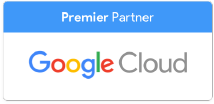Millennials have built quite a reputation for their work ethics over the years. They are also perceived to carry a certain sense of entitlement and are generally tough to control. For instance, they are known to demand higher salaries than they deserve and want quicker promotions. But as disruptive as they are for the established work culture, they also bring certain positives that managers and executives should tap into. Now that millennials account for around 35% of the US workforce, they no longer can be ignored and thus are exerting pressure to radically shape the workplace into a way that aligns with their needs and worldviews.
A few distinctive characteristics that define millennials include:
Workplace Flexibility
More millennials believe reaching the office on time doesn't matter as long as work is done. They are staunch supporters of work-life balance and thus are even willing to take small pay cuts in exchange for more flexibility at the workplace.
More Collaborative
Traditional corporate culture is based on fixed job profiles that neatly segregated job responsibilities to different employees. Millennials abhor such work practices and are inclined towards a dynamic work culture based on deep collaboration and consistent feedback.
Less Affinity for Processes
Irrespective of the job profile, every employee spends a significant amount of their time on unproductive tasks like reporting on daily activities and sitting in on useless meetings. Millennials prefer to directly get to the execution part and later improvise when required. This makes them exceptionally well-suited for startups but put them at odds in the corporate environment.
Once you take all these factors into account, it becomes evident that millennials aren't going to be content in the traditional confines of office boundaries and siloed job roles. To attract the best talent and lower attrition, you must foster a dynamic workplace that conforms to the aspirations of the rising number of the millennial workforce. While not all businesses have the resources and scale to match each of their demands, here are a few baselines that everyone can achieve:
Embrace Cloud
The age of static workplace with workstations at designated spots is over. With the rise of SaaS products, remote working is the norm that enables employees to work from anywhere, thus offering them their much-valued flexibility.
Technology Solutions
Most business tools these days come with a certain degree of automation that saves valuable working hours otherwise wasted on redundant tasks. They also enable transparency across entire teams by making data accessible to each team.
Collaborative Culture
As mentioned earlier, millennials prefer to work in a collaborative environment, which often requires the use of specific tools. Something as simple as migrating to G-Suite can drastically improve productivity and help your employees
As most managers would concede, building a dynamic workplace from scratch is easier than later migrating to it from a rigid workflow. Take G-Suite for example - it is easier if all employees work on it from day 1 rather than migrating all the archival data on it later.
If you are a business facing such problems and are willing to transform your workplace only to be deterred by the corresponding challenges, UpCurve Cloud has got you covered. Get in touch with our consultants to learn more about how your business can benefit from such transformations and the optimum migration strategy.
Contact Us to Learn More about Transforming Your Business
